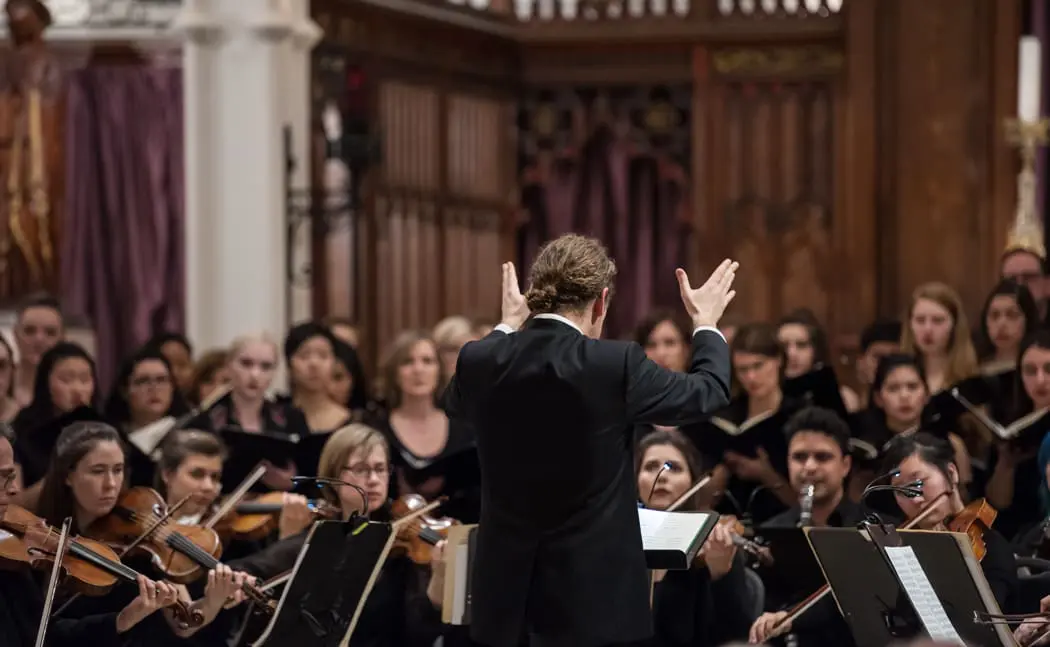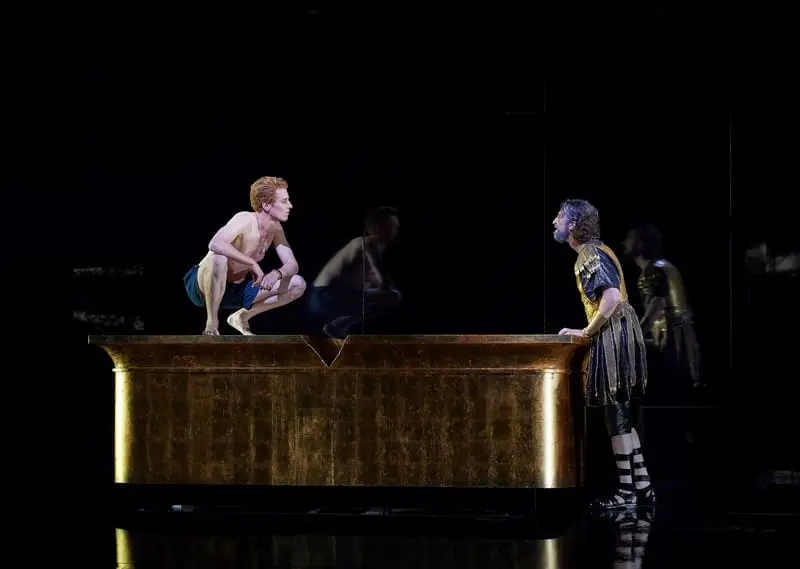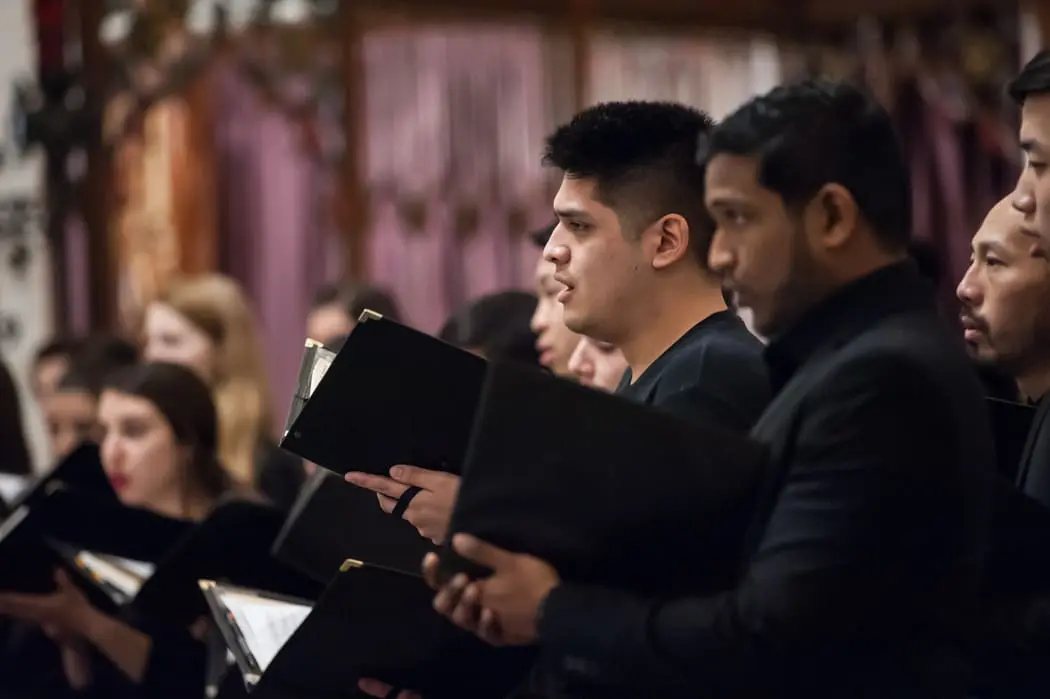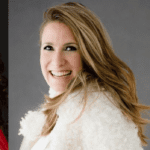Tucked away in the halls of the University of Toronto, past a dizzying variety of architectural pinpoints that make up its network of colleges, lies UofT Music School’s Early Music program. Charged with exposing students to pre-classical repertoire, the program is the brainchild of Daniel Taylor, renowned countertenor and conductor. With the program’s season about to open, I had the opportunity to speak with both Taylor and Larry Beckwith, conductor and Taylor’s long-time collaborator, about the program and early music in general.
“A lot of the pedagogy of string playing… originated in the 19th century,” explains Beckwith over the phone. “I struggled with that for years and years.”
“[Pre-19th century music] used to be a speciality… but now I find that there’s quite a flow between modern playing and baroque playing.”
This is in no small part thanks to educational programs like UofT’s, which itself has steadily grown over the last few years thanks to Taylor’s efforts. “Some of that [growth] had to do with simple rebranding,” explains Taylor. “When I first came there had been some work in medieval music…however there wasn’t the structure of a graduate program.”
This ‘rebranding,’ as he dubs it, started simply by renaming one of the school’s vocal ensembles and a “languishing” string ensemble course to Schola Cantorum and Collegium Musicum respectively but also involved rehauling the curriculum around performance projects. “I looked to bringing public attention to the works that the students were doing. Part of the model also then, in my view, was to give the students what we call experiential training and education.”
The results of this push for ‘experiential training’ has been an influx of prestigious performers, all eager to work with students in hands-on masterclasses and performances. Guests have included Nancy Argenta, Ingrid Attrot, Benjamin Butterfield, Tracy Dahl, Tallis Scholars, and Clarion Choir just to name a few.
“We’re including in that concert ancient Slavic chants,” explains Taylor when describing their performance with Clarion this coming February.
Of course, being outside of standard repertoire and established educational practice presents its own set of challenges, not least of which are the historiographical pitfalls inherent in research. While for an expert like Larry Beckwith the exercise can “come quite naturally,” it can be quite daunting for students approaching this music for the first time. “It involves research,” notes Beckwith. “A young singer… when performing early music would have to familiarize themselves with the traditions of the day. So it’s all about style, it’s all about affect. And becoming familiar with that style and with that affect can be time consuming and can involve reading contemporary treatises of the day.”
“A student of early music would read those treatises, become familiar with good editions of the works because sometimes they can be, throughout the ages… heavily edited versions where good intentioned editors have tried to improve on Handel. And that usually meets with disastrous results.”
History, contrary to popular perception, is an amorphous thing. It flows to the whims of the present, to new information, new methods, and new perspectives. Remaining true to the intentions of original authors and parsing through the accumulated historical clutter takes work. However, slavish recreation risks stagnation, and can relegate early music to the status of dusty museum pieces. This, argues Beckwith, is not what the program is about.
“I think it’s important to give the students… the liberty to approach this music naturally and as you would a contemporary pop song or as something that is very present day… the process in the last forty or fifty years… has been to blow the dust off these works and not look at them as something old and kind of, somehow, unapproachable but as being full of life and vibrancy and relevant to modern day sensibilities.”
Freedom of exploration, and more crucially freedom from judgement, has been a central pillar of Daniel Taylor’s educational philosophy. “Too often…the student and the voice is only viewed through one lens,” laments Taylor. “Too often, I think at schools, if that sound doesn’t fit in the instructor’s ear… then its often discouraged.”
“By introducing them to that [early musical] language… the student can make that language their own.”
Compromising the Composition
Instilling a language rooted in such a specific tradition while still allowing for personal interpretation is, of course, a tough act to balance. But this tug-of-war between institutional authority and individual voice is one deeply reminiscent of the push and pull between director and performer ingrained in opera’s DNA and, indeed, in its success. Few recognise this dynamic more clearly then Isaiah Bell, the renowned tenor who is directing Handel’s Acis and Galatea, the opening production of this year’s UofT Early Music season.
“I think that as a singer I’ve been criticized for being a little too directorial,” grins Bell. Having successfully produced Handel’s opera alongside Beckwith in Victoria, Bell has brought the show to Toronto and, with it, his deliberately collaborative philosophy aimed at turning performers into “creative partners.”
“We come in with this very strong structure… for them to live within,” explained Bell. “[The director] has the overall vision of the show but trusts that you’re a creative artist… they trust that you are bringing something to the table too.”
“When [performers] are in show where someone doesn’t trust [them] as an artist and as a collaborator, not only is it boring and stifling but it’s not as interesting as a project because you don’t [give licence to] all these voices.” As far as Bell is concerned, boring is the last thing Handel is nor should be.
“A little rock-in-my-shoe about Baroque opera in general is that… people think that Baroque opera is boring or it takes too long or it’s too old fashioned so it needs to be distracted from.”
A pervasive sentiment in opera circles, to be sure. Opera’s supposedly teetering existence between tradition and relevance is such a pervasive fear that attempts to make it ‘modern’ feel almost cliched. The idea of ‘opera with cellphones’ has almost become shorthand for a desperate and tacky appeal to hipness.
“I’m impatient with modern art a lot,” he admits “The thing that I get impatient with is that sometimes you see something where an artist thought it was enough for them to [just] have an idea and tell me about that idea… and I think that’s something that I like about this old-fashioned music… that the really great composers and the really great artists of any discipline who have survived over these hundreds of years [are those] who… managed to infuse immediate, real humanity that was built on technical labour.”
For Bell, this craft and this immediacy is the key to making these pieces feel timeless.
“If it’s good art it’ll touch something in us that’s eternal.”
Bach to the Future
Despite some frustration with the modern Bell is not exactly a purist, and has little love for slavish recreation.
“I’m not interested in it, personally, as an academic exercise,” he insists. “I’ve gone to shows like this where you see something that’s very historically accurate but is so removed from our current experience…that seems so focused on the mannerisms that it loses connection to the internal humanity.”
Like the struggle between curriculum and personal voice, and between director and performer, the most satisfying result in the fight between past and present is, for Bell, somewhere in the middle. Or as he puts it, in “splitting the difference.”
“What’s important to me is that we harken back to how it was originally done as much as we know, in as much as it will help it come alive.” When one trusts the music, Bell argues, it doesn’t matter if there are phones or powdered wigs, the feeling will resonate. “I wanted to make sure to stay really true to what’s there, to the emotional journey.”
Recognizing this emotional throughline informs the entire Early Music program. As Larry Beckwith argues, “we tie ourselves up in knots when we try to approach it as something classical or something unapproachable.” It is this quest to reveal the accessibility of this music that has allowed UofT to develop the largest early music program in Canada.
“Between the Collegium and the Schola and my own [voice] studio we have the participation of almost 100 students, which would represent half the number of singers we have at the school,” notes Taylor.
That is no small feat given the existential anxieties that seem to wrack opera. The discourse of the day is plagued with fears of relevancy, discourse equally dominated by reverent purists and irreverent iconoclasts. It is curious, and, if you will, Romantic then that in harkening so far back to the past, Taylor has found a way forward: recognizing the beauty of early works, but not stifling performers in how they coax this beauty out. This compromise has not only allowed UofT’s program to lead Early Music education but, according to Taylor, has brought in a surprisingly large audience to supposedly obsolete art.
“Our experience is richer if we can open our ears, and open our hearts to different sounds.”
A statement true for both the new, and the old.
Acis and Galatea will be performed Saturday Oct. 19th and Sunday Oct. 20th at Heliconian Hall in downtown Toronto.















